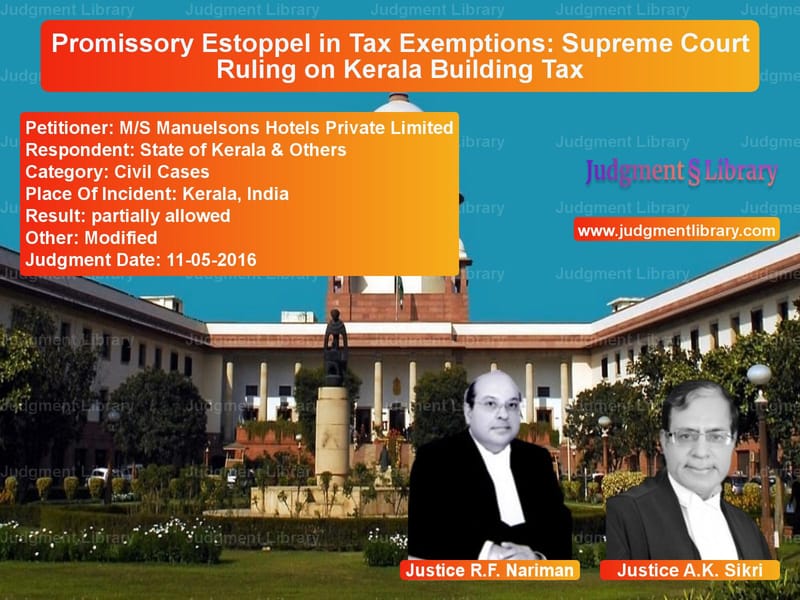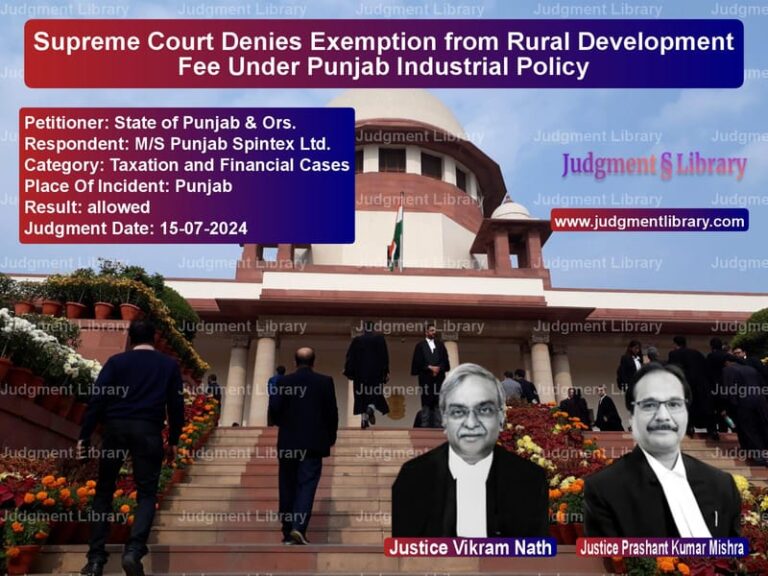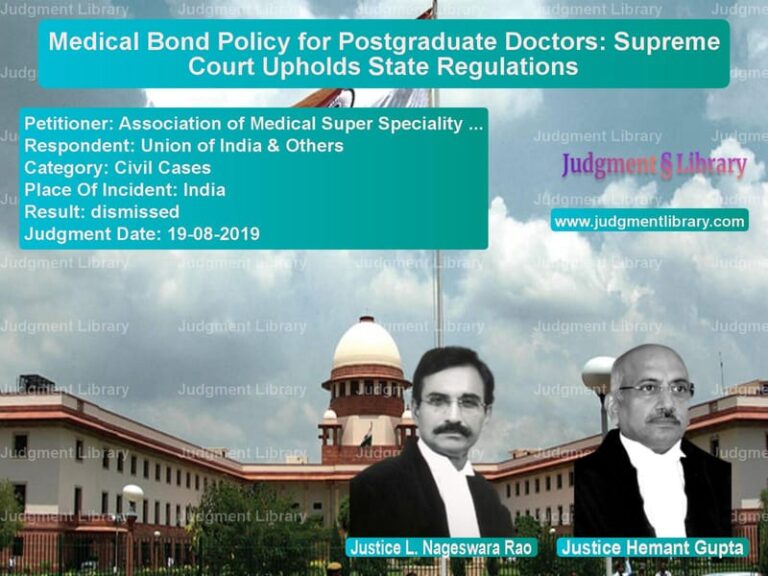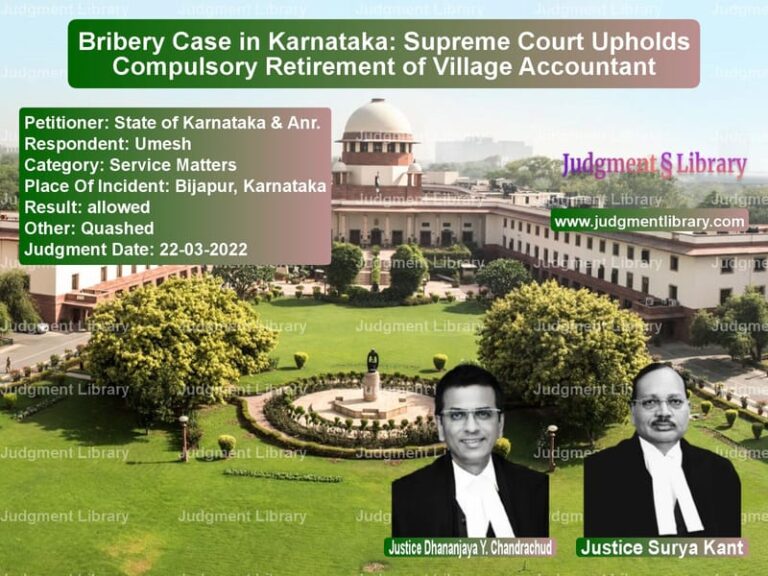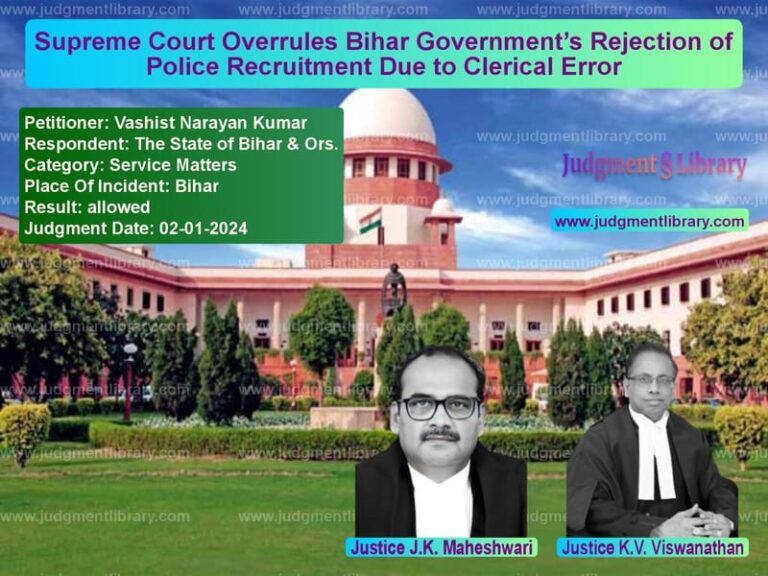Promissory Estoppel in Tax Exemptions: Supreme Court Ruling on Kerala Building Tax
The Supreme Court of India, in its landmark judgment in M/S Manuelsons Hotels Private Limited vs. State of Kerala & Others, addressed the principle of promissory estoppel in relation to tax exemptions granted by the government. This case centered around a commitment made by the State of Kerala to exempt certain tourism-related buildings from the Kerala Building Tax, only for the government to later withdraw the exemption.
Background of the Case
On July 11, 1986, the Kerala government issued a Government Order (G.O.), accepting the recommendation to declare tourism as an industry. This classification was aimed at granting various concessions, including an exemption from building tax for tourism-related establishments. Subsequently, a committee was set up to oversee the scheme.
M/S Manuelsons Hotels Private Limited planned to construct a three-star hotel in Calicut. The project was approved by the Government of India on March 25, 1987, and construction was completed by 1991. The company, relying on the exemption granted in 1986, declined to file returns under the Kerala Buildings Tax Act, 1975.
However, in 1990, the Kerala government introduced an amendment to formalize the tax exemption. The Kerala Buildings Tax Amendment Act of 1990 inserted Section 3A, allowing tax exemptions for tourism-related buildings under specific conditions. Despite this, the government later omitted Section 3A in 1993, withdrawing the exemption without prior notification to stakeholders.
Legal Issues Presented
- Was the Kerala government bound by its promise to grant a tax exemption?
- Could the doctrine of promissory estoppel be applied against the government?
- Did the withdrawal of the exemption violate constitutional principles?
Arguments Presented
Petitioner’s (Manuelsons Hotels) Arguments:
- The 1986 G.O. and subsequent approval created a legitimate expectation of tax exemption.
- The company had relied on the government’s promise and incurred substantial investments.
- The withdrawal of the exemption was arbitrary and lacked justification in public interest.
- The principle of promissory estoppel should prevent the government from reneging on its commitment.
Respondents’ (State of Kerala) Arguments:
- The government cannot be forced to amend or frame laws through judicial intervention.
- The deletion of Section 3A from the Kerala Buildings Tax Act nullified any prior commitments.
- Promissory estoppel cannot be used to override statutory provisions.
Supreme Court’s Analysis
The Court examined the doctrine of promissory estoppel and its applicability in this case:
- The government had made a clear and unequivocal promise regarding tax exemption.
- The petitioner had acted upon this promise and invested in the hotel project.
- The withdrawal of the exemption lacked any justification based on overriding public interest.
- The doctrine of promissory estoppel could be applied, as seen in past cases such as Motilal Padampat Sugar Mills vs. State of Uttar Pradesh (1979).
The Court also held that the mere absence of an official notification under Section 3A did not invalidate the exemption, as the government had already communicated the policy.
Final Verdict
The Supreme Court ruled:
- The State of Kerala was bound by the doctrine of promissory estoppel and could not withdraw the exemption arbitrarily.
- For the period between 1990 and 1993, when Section 3A was in effect, the hotel was not liable to pay building tax.
- Post-1993, since the statute no longer provided for an exemption, the petitioner could not claim relief beyond this period.
Key Takeaways
- Government Accountability: This judgment reinforces that governments must honor their commitments, especially when businesses have relied on them.
- Limits of Promissory Estoppel: While the doctrine applies against the government, it cannot override existing statutory provisions.
- Legal Precedent: The case serves as a crucial precedent in matters of tax exemptions and business incentives.
This ruling highlights the delicate balance between government policy, legislative authority, and the protection of commercial interests under Indian constitutional law.
Don’t miss out on the full details! Download the complete judgment in PDF format below and gain valuable insights instantly!
Download Judgment: MS Manuelsons Hotel vs State of Kerala & Ot Supreme Court of India Judgment Dated 11-05-2016-1741860775796.pdf
Direct Downlaod Judgment: Direct downlaod this Judgment
See all petitions in Property Disputes
See all petitions in Contract Disputes
See all petitions in Damages and Compensation
See all petitions in Judgment by Rohinton Fali Nariman
See all petitions in Judgment by A.K. Sikri
See all petitions in partially allowed
See all petitions in Modified
See all petitions in supreme court of India judgments May 2016
See all petitions in 2016 judgments
See all posts in Civil Cases Category
See all allowed petitions in Civil Cases Category
See all Dismissed petitions in Civil Cases Category
See all partially allowed petitions in Civil Cases Category

